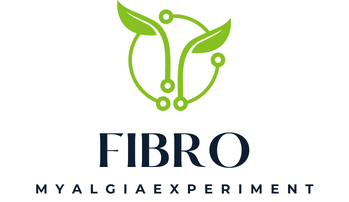Post-traumatic Stress Disorder (PTSD) is a mental health condition that’s triggered by a terrifying event, either experiencing it or witnessing it. Symptoms may include flashbacks, nightmares and severe anxiety, as well as uncontrollable thoughts about the event. Many military veterans suffer from PTSD as a result of traumatic experiences during their service. This article explores how companion animals, specifically trained dogs, can help these individuals manage their symptoms.
The Prevalence of PTSD among Veterans
According to the U.S. Department of Veterans Affairs, about 15 to 20 percent of veterans who served in Iraq or Afghanistan suffer from PTSD. The nature of military service often exposes individuals to traumatic events, such as combat and injury, which can lead to the development of PTSD. The condition can significantly affect a veteran’s quality of life, disrupting their work, relationships and overall health.
A lire également : What Are the Best Dietary Strategies for Managing GERD (Gastroesophageal Reflux Disease)?
Various treatment options are available for veterans with PTSD, including therapy, medication, and alternative treatments. Recently, the effectiveness of companion animals, specifically trained dogs, as a form of alternative treatment has gained recognition.
The Role of Trained Dogs in Managing PTSD Symptoms
Dogs are known as man’s best friend for a reason. These animals have been relied on for thousands of years for companionship, protection, and assistance. Today, trained dogs are used to help individuals with a variety of physical and mental health conditions, including PTSD.
A lire également : How Does Learning a New Language Later in Life Impact Cognitive Decline?
These dogs are trained to perform specific tasks that can help manage PTSD symptoms. For instance, they can be trained to recognize and respond to anxiety or panic attacks, provide comfort during emotional distress, and even remind their handlers to take medication. They can also perform physical tasks, such as retrieving objects, helping with mobility, and creating a physical barrier between the veteran and potentially triggering situations.
Empirical Evidence on the Effectiveness of Companion Animals in PTSD Treatment
Several studies have explored the role of companion animals in managing PTSD symptoms. A study published in the journal "Military Medicine" found that veterans with PTSD who were paired with service dogs reported significantly lower levels of PTSD symptoms, including less frequent nightmares and flashbacks, and decreased feelings of anxiety and depression.
Another study published on PubMed found similar results. Veterans who were paired with service dogs showed significant improvements in their PCL (PTSD Checklist), a self-reported measure of PTSD symptom severity.
Despite these promising results, it’s important to note that more research is still needed to fully understand the impact of companion animals on PTSD treatment.
Things to Consider When Using Trained Dogs for PTSD Management
While the evidence suggests that trained dogs can be beneficial in managing PTSD symptoms, there are several factors that potential handlers should consider.
Firstly, owning a dog is a significant responsibility. Dogs require daily care, including feeding, exercise, and regular veterinary checkups. For some veterans, especially those with severe PTSD symptoms, this responsibility may be overwhelming.
Secondly, not all dogs are suitable for this role. The dog must be properly trained to perform the necessary tasks, and their temperament must be suitable for the handler’s lifestyle and needs.
Lastly, while dogs can provide significant emotional support and assistance, they are not a replacement for traditional treatment methods. Veterans suffering from PTSD should continue to seek medical treatment and therapeutic support.
The Impact of Companion Animals on Veterans’ Health Beyond PTSD
The benefits of companion animals go beyond just managing PTSD symptoms. Numerous studies have shown that owning a pet can have a positive impact on overall health and wellbeing.
Owning a pet has been linked to lower blood pressure, decreased levels of cholesterol and triglycerides, and reduced feelings of loneliness. Furthermore, the physical activity involved in caring for a pet can promote overall physical health and wellbeing.
In conclusion, while the use of companion animals, specifically trained dogs, in managing PTSD symptoms is still a relatively new field of study, the initial results are promising. As more research is conducted, it’s likely that we will continue to discover more about the healing power of these incredible animals.
The Process of Training a Dog for PTSD Management
Training a service dog to assist individuals with PTSD, especially military veterans, is a complex process that requires time, patience, and a deep understanding of both canine behavior and the specific needs of people living with PTSD.
Typically, the training process begins when the dog is a puppy. The young dog undergoes socialization training, where it’s introduced to different environments, people, and other animals to ensure it’s confident and comfortable in various situations.
The next phase involves task-specific training. This includes tasks that are directly related to PTSD symptoms. For example, the dog may be trained to disrupt a veteran during nightmares or flashbacks, create a physical barrier in crowded areas, or guide an individual to a safe location when they’re experiencing severe anxiety. They can also be taught to remind their handlers to take medication, a crucial part of managing PTSD.
Finally, the dog’s emotional sensitivity is honed. This involves training the dog to recognize changes in the handler’s mood or behavior that could indicate an impending panic attack or emotional distress. The dog can then react in a way that provides comfort or distraction, thereby mitigating the PTSD symptoms.
Notably, the training is not a one-time process. It requires continuous reinforcement throughout the dog’s life to ensure that they remain accurate and reliable in their tasks. The veterans and their service dogs often continue training together, fostering a bond that’s beneficial to the emotional wellbeing of both.
The Accessibility and Challenges of Obtaining a PTSD Service Dog
While the benefits of a PTSD service dog are promising, obtaining one can be a challenge. There are logistical hurdles and financial constraints that might limit accessibility for those who need it most.
Firstly, there’s a high demand for service dogs, which often exceeds the supply. Many non-profit organizations that train and provide service dogs have lengthy waitlists, sometimes extending several years. It’s also imperative to remember that not all dogs are suitable for service work, further limiting the available pool.
Another significant challenge is the cost associated with obtaining a service dog. The cost of raising, training, and maintaining a dog can be high. While some organizations provide the dogs for free or at a subsidized cost, others may charge up to $25,000. For many veterans, this cost is prohibitive.
Finally, there’s still a lack of understanding and awareness about the role of service dogs for PTSD management, both within the medical community and the general public. This lack of awareness can create difficulties for service dog handlers, who may face discrimination or misunderstanding about their dog’s role and rights.
Conclusion: Looking Ahead at the Role of Service Dogs in PTSD Treatment
The positive impact of service dogs on the lives of veterans with PTSD is undeniable. These specially trained animals provide both practical assistance and emotional support. They alleviate PTSD symptoms, improve overall mental health, and bring joy and companionship to their handlers.
The current body of research, while promising, is still limited. More comprehensive and long-term studies are needed to fully understand the potential of this treatment method. Further research could also help to improve training methods, making service dogs even more effective in managing PTSD symptoms.
In addition, efforts should be made to increase accessibility to service dogs. This might include increasing funding for non-profit organizations that provide service dogs, as well as implementing policies that make it easier for veterans with PTSD to obtain and keep a service dog.
Post-traumatic stress disorder is a significant challenge for many veterans. However, the future looks brighter with alternative treatment methods like service dogs providing a beacon of hope. As our understanding of the symbiotic relationship between humans and animals deepens, we can continue to harness this bond to improve mental health outcomes for military veterans and others living with PTSD.






